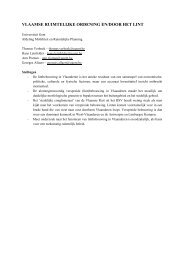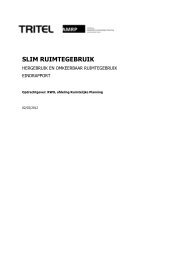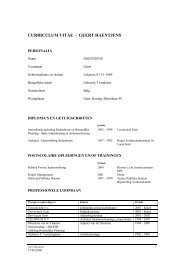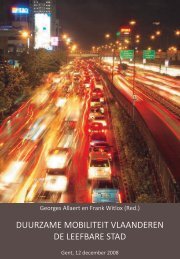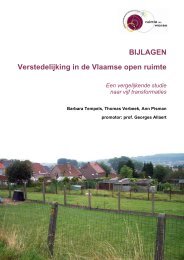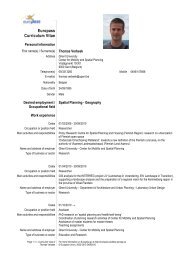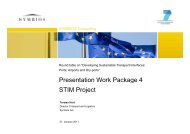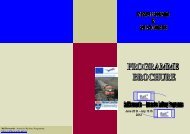third international conference on climate change
third international conference on climate change
third international conference on climate change
You also want an ePaper? Increase the reach of your titles
YUMPU automatically turns print PDFs into web optimized ePapers that Google loves.
RECENT BOOKS PUBLISHED BY COMMON GROUND<br />
Limited quantities are available for purchase at the Registrati<strong>on</strong> Desk. These and other books are available at<br />
http://<strong>on</strong>-<strong>climate</strong>.com/books/.<br />
Building our Sustainable Cities<br />
by Rita Yi Man Li<br />
Sustainable development has become a hot topic worldwide in<br />
recent decades. Following the Copenhagen Summit, politicians and<br />
the general public were <strong>on</strong>ce again faced with the reality of<br />
inevitable <strong>climate</strong> <strong>change</strong>. Is there anything we can do to stop global<br />
warming? Are there any possible ways to achieve the goal of zero<br />
carb<strong>on</strong>? What can we, as laymen in the global village, do in the<br />
coming years so that future generati<strong>on</strong>s can enjoy a natural<br />
envir<strong>on</strong>ment similar to ours?<br />
This book c<strong>on</strong>sists of three parts. The first part is an introducti<strong>on</strong><br />
that provides a general overview of sustainable development in<br />
China, Singapore, the United Kingdom, the United States of<br />
America and Australia. The sec<strong>on</strong>d part introduces the c<strong>on</strong>cept of<br />
sustainability in the built envir<strong>on</strong>ment. The <str<strong>on</strong>g>third</str<strong>on</strong>g> part of this book<br />
focuses <strong>on</strong> sustainable land use planning in H<strong>on</strong>g K<strong>on</strong>g.<br />
Learning Nature: How the Understanding of Nature<br />
Enriches Educati<strong>on</strong> and Life<br />
by Ruyu Hung<br />
Learning Nature presents exciting scholarship <strong>on</strong> the explorati<strong>on</strong> of<br />
the c<strong>on</strong>cept of nature and its implicati<strong>on</strong>s for educati<strong>on</strong>. The<br />
author—Ruyu Hung—argues that ―nature‖ is a rich and fundamental<br />
source of meaning to enable <strong>on</strong>e to learn to live a meaningful life<br />
and yet that what is taught about nature in many c<strong>on</strong>venti<strong>on</strong>al<br />
curricula is severely limited, resulting in an impoverishment of<br />
meaning. The central aim of this book is to provide different<br />
approaches to the understanding of nature in order to show the<br />
fecund meanings that have rich educati<strong>on</strong>al significance and the<br />
implicati<strong>on</strong>s for pedagogy.<br />
Interrogating the educati<strong>on</strong>ally meaningful c<strong>on</strong>cepti<strong>on</strong>s of nature,<br />
this book identifies five themes to anchor our multifarious<br />
understandings of nature. Each theme with its implying polarities<br />
illuminates the significance of the human c<strong>on</strong>ceptualisati<strong>on</strong> of nature<br />
as an <strong>on</strong>-going dynamic and dialectic process. The investigati<strong>on</strong>s<br />
invite the readers to envisage and rec<strong>on</strong>figure educati<strong>on</strong> so as to<br />
accommodate heterogeneous and plural views of nature and reveal<br />
the abundance of meaning to be had in different ways of<br />
experiencing nature in the c<strong>on</strong>text of <strong>on</strong>e‘s unique life.<br />
The Sustainability Practiti<strong>on</strong>er’s Guide to Input-Output<br />
Analysis<br />
edited by Joy Murray and Richard Wood<br />
This book provides an introducti<strong>on</strong> to input-output analysis for<br />
sustainability practiti<strong>on</strong>ers. It is designed for those with knowledge<br />
about the sustainability dilemma we face, but who are unsure about<br />
the how of measuring our impacts, tracking our progress and<br />
informing the decisi<strong>on</strong>s for a sustainable future.<br />
Input-output analysis placed in a transdisciplinary setting is a<br />
method that captures the complexities and interdependencies of our<br />
social, ec<strong>on</strong>omic and envir<strong>on</strong>mental support systems. Examples of<br />
the use of input-output analysis in life-cycle assessment, triple<br />
bottom line accounting and carb<strong>on</strong> and ecological footprints are<br />
provided al<strong>on</strong>g with an introducti<strong>on</strong> to a range of software tools. In<br />
academic circles research has been gathering pace <strong>on</strong> these<br />
methods and issues over the last years. This book brings this state<br />
of the art to the decisi<strong>on</strong> makers and policy shapers of today.<br />
39





